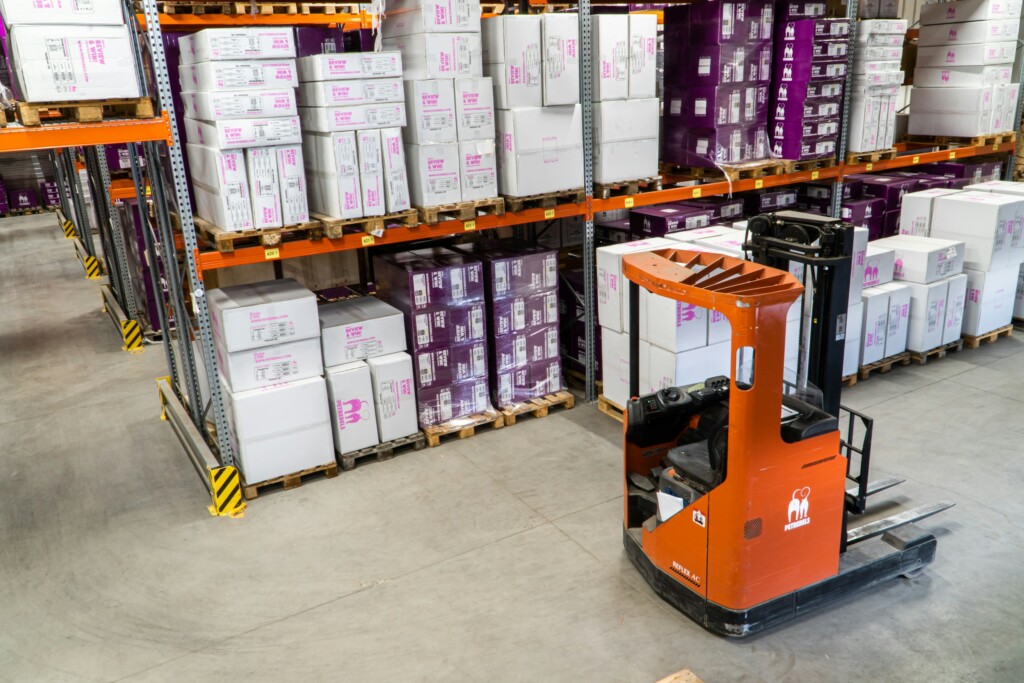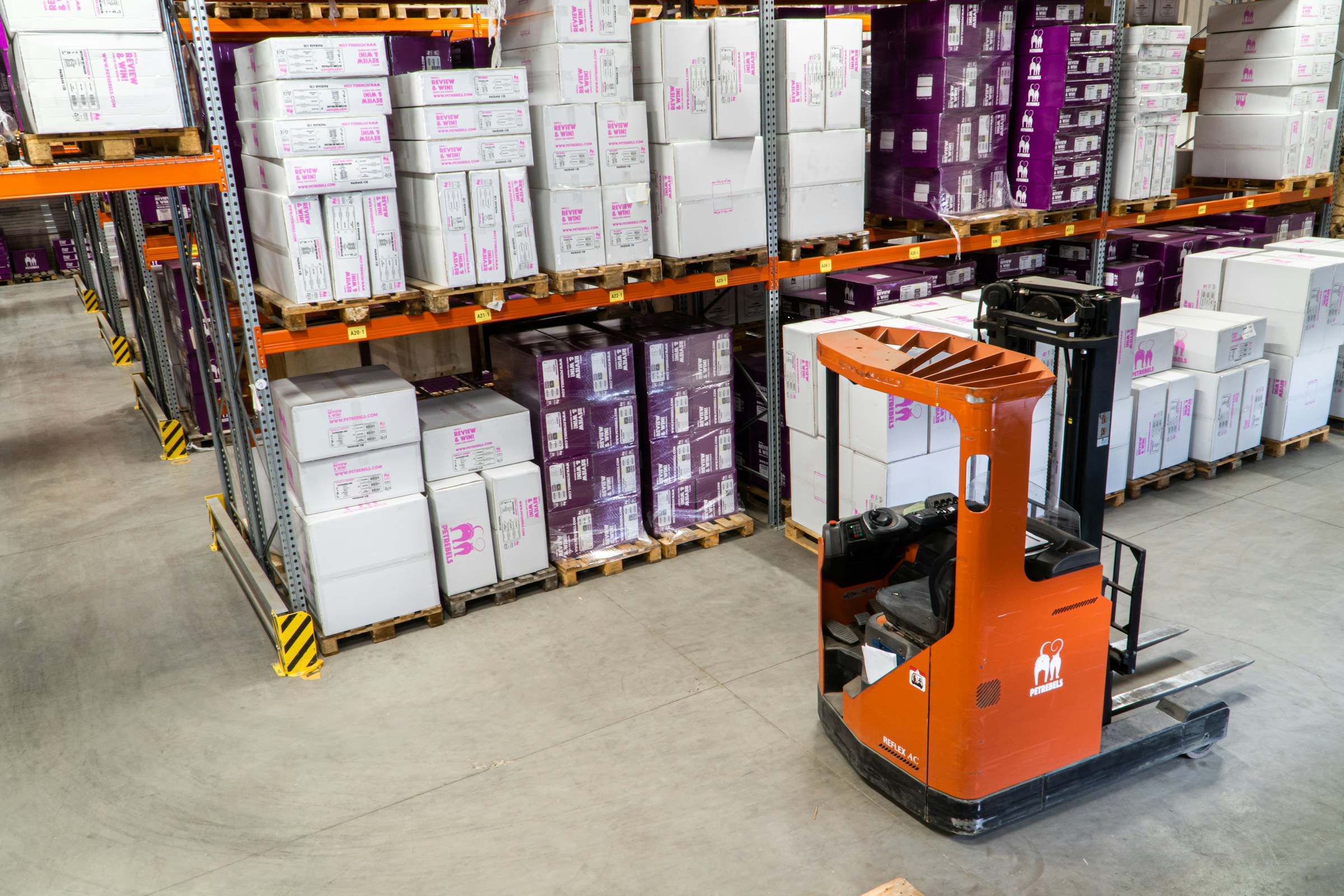How to Leverage RFID Technology Solutions for Enhanced Retail Inventory Management


RFID Technology Solutions has transformed retail inventory management. It automatically detects and follows tags on objects using electromagnetic fields. Because of this, more effective automated inventory tracking systems than barcoding are possible. RFID can read multiple tags without a direct line of sight, making inventory management more efficient and accurate.
Inventory management affects customer satisfaction, operational efficiency, and profit. RFID technology solutions allow stores to see inventory levels like never before, reduce the risk of running out or having too much, and trust their decision-making data.
RFID hardware leaders in the US and Canadian mobile computing solution providers are leading this innovation. These companies offer a variety of retail-specific solutions. These suppliers provide advanced tagging and robust inventory management systems to build a more agile, precise, and robust retail sector.
This article will guide retailers through implementing this cutting-edge technology to stay ahead in the digital age. RFID adoption benefits, implementation strategies, and real-world success will be examined.
Understanding RFID Technology in Retail
RFID is radio-frequency identification. This technology uses radio waves to identify objects automatically. RFID systems consist of tags and readers. Tags are small electronic devices that store object data. This technology allows real-time data viewing throughout a product’s lifecycle, from manufacturing to retail.
Benefits of RFID over Traditional Inventory Management Methods
US RFID hardware and mobile computing manufacturers Canadian RFID solution providers are revolutionizing retail logistics with RFID technology that outperforms barcode scanning and manual stock-taking.
- Efficiency and Speed: RFID speeds up inventory scanning by scanning multiple items simultaneously, unlike barcodes. This fast processing allows frequent inventory counts, improving stock visibility and management.
- Accuracy and Reliability: RFID greatly reduces human error. RFID systems offer high-accuracy tracking and inventory management, helping retailers reduce inconsistencies and improve accuracy.
- Real-Time Inventory Management: RFID technology lets stores monitor inventory levels in real-time and respond quickly to trends, surpluses, and shortages. Real-time data lets us optimize stock levels and eliminate stockouts and surpluses.
- Theft Prevention and Security: Another security measure is RFID tags. RFID tags allow you to track your items throughout the store, making theft and loss detection easier.
- Enhanced Customer Experience: RFID technology can boost customer satisfaction and loyalty by speeding up checkout and stocking popular items.
Key Components of an RFID System for Retail
RFID simplifies inventory management and integrates its core components in retail. Any retailer looking to benefit from RFID technology solutions, collaborate with US RFID hardware companies, and work with Canadian mobile computing RFID solution providers must understand these components.
RFID Tags
RFID tags are the system’s core. Each shape and size of these small but powerful devices has a place in retail. The main RFID tag types are passive and active.
- Passive RFID Tags: These devices use antennas to communicate with RFID tags via radio waves. Data is accessible when tags are within range. Handheld and entry/exit readers allow for mobile inventory management.
- Active RFID Tags: Reader signals cause antennas to pick up tag sensor signals. The type and arrangement of antennas significantly impact their efficiency and range. A high-gain antenna makes tracking easier on a large retail floor.
RFID Readers and Antennas
RFID software solutions are the brains that process reader data and provide inventory management insights.
- RFID Readers: RFID software can analyze tag data to determine merchandise location, condition, and motion throughout the store. It assists retailers in making informed decisions by highlighting popular items and high-theft risks.
- RFID Antennas: When done correctly, RFID software can connect to retail management systems and share data. It updates inventory levels automatically, with no human intervention or errors.
RFID Software Solutions
RFID software manages inventory and offers advanced analytics and reporting. These tools assist retailers in optimizing inventory, redesigning store layouts, and more.
- Data Interpretation: RFID software processes the raw data collected from tags to determine the retail space’s status, location, and inventory movement. It can identify patterns, like popular items or high-theft risks, helping retailers make informed decisions.
- Integration: Effective RFID software can integrate with existing retail management systems, providing a seamless flow of information. It ensures that inventory levels are automatically updated, reducing manual input and potential errors.
- Analytics and Reporting: RFID software offers advanced analytics and reporting capabilities beyond inventory tracking. Retailers can use these tools to optimize inventory levels, improve the layout of the retail space, and enhance the customer shopping experience.
Implementing RFID in Retail Inventory Management

RFID can revolutionize retail inventory management if planned, equipped, and integrated. It boosts inventory accuracy, operational efficiency, and customer satisfaction.
Planning and Strategy
The foundation of a successful RFID implementation lies in thorough planning and a clear strategy. This phase involves:
- Assessing Retail Needs
- Setting Objectives for RFID Implementation
- Identifying Key Areas of Application
Choosing the Right RFID Technology Solutions
Selecting the appropriate RFID technology solutions is crucial for meeting your retail objectives. Consider the following criteria:
- Compatibility and Scalability: Choose RFID hardware and software that meets your current needs and can scale with your business. The solutions should be compatible with RFID tags and readers as your inventory or product range expands.
- Performance and Reliability: Evaluate the performance metrics, such as read range, accuracy, and speed, to ensure they align with your retail environment’s demands. Reliability is key to minimizing downtime and maintaining continuous inventory tracking.
- Highlighting Leading RFID Hardware Companies in the USA: Research and identify leading RFID hardware companies in the USA known for their innovation, quality, and customer support. Companies like Zebra Technologies, Impinj, and Honeywell are renowned for offering robust RFID solutions tailored to retail needs.
Integration with Existing Systems
RFID must work hand-in-hand with your current retail management systems to deliver its full potential. This includes:
- Ensuring Compatibility: The selected RFID solutions should seamlessly integrate with your existing retail management software, point of sale (POS) systems, and other technology platforms. This ensures smooth data flow and minimizes the need for manual data entry.
- Customization and Flexibility: Look for RFID software solutions offering customization options to fit your retail operations and workflows. The ability to adapt the technology to your processes, rather than the other way around, is crucial for a smooth transition and adoption.
- Technical Support and Training: Ensure your RFID technology provider offers comprehensive technical support and training resources. To maximize benefits and ROI, your staff must be properly trained in RFID use.
Mobile Computing: The Future of RFID in Retail
Mobile computing and RFID help retailers increase sales, efficiency, and customer satisfaction. Mobility allows data management and real-time access, improving retail RFID solutions.
This adaptability helps store managers make quick, well-informed decisions, customers get better service from timely, accurate information, and inventory management is easier.
RFID and mobile computing startups in Canada create cutting-edge retail solutions. Their specialty is RFID-powered mobile apps and devices for inventory management, asset tracking, and consumer engagement.
Retail employees can manage and understand RFID data with little training using Canadian RFID solution providers’ user-friendly interfaces. Both small and large department stores can use their customizable solutions.
Canadian RFID providers integrate mobile RFID solutions with retail management systems well. This streamlines transition without disrupting operations. Mobile computing has changed retail RFID deployment and use.
Challenges and Considerations in RFID Adoption

While RFID technology solutions offer transformative benefits for retail inventory management, adopting this technology comes with challenges and considerations. Understanding these hurdles is crucial for retailers, RFID hardware companies in the USA, and mobile computing RFID solution providers in Canada as they navigate the path to successful RFID implementation.
Technical and Financial Challenges
- Technical Complexity: Integrating RFID systems into retail environments is technically challenging. To prevent disruptions, retailers should test their inventory and sales management systems using RFID tags, readers, antennas, and software. Integration typically necessitates procedure changes and technical expertise.
- Infrastructure Costs: RFID technology setup can be costly for SMEs. This includes tags, readers, and the custom software required to implement them. Maintenance and updates to RFID systems may also impact the retailer’s bottom line.
- Scalability Issues: Companies require RFID systems that can scale with them. Scalability can be expensive because it necessitates new hardware and software to handle increased inventory and operational space.
Privacy and Security Concerns
- Data Privacy: RFID tags may store sensitive inventory and customer purchase information, raising data privacy concerns. This data must be encrypted and hidden immediately.
- Security Vulnerabilities: like all other digital technologies, RFID systems are susceptible to hacking. Retailers should implement strict security measures to avoid financial or reputational damage caused by data theft or manipulation.
- Consumer Skepticism: RFID technology may cause concern in some consumers, particularly regarding privacy. They may be concerned that RFID tags will track them or collect private information without their consent. Maintaining trust requires openly addressing customer concerns while protecting their privacy.
Conclusion
RFID is transforming retail inventory management. Real-time tracking and data collection improve inventory accuracy, reduce labor costs, and reduce overstocking and stockouts. Mobile computing helps retail workers manage inventory and provides excellent customer service, improving operational efficiency.
Mom-and-pop shops will benefit from RFID Technology Solutions adoption and price drops. RFID, AI, and IoT can benefit retail operations, customer behavior analytics, and inventory management.
Starting RFID may be scary, but you’re not alone. Partnering with RFID experts like 44degNorth can help implement the technology.
44degNorth offers end-to-end RFID solutions for the retail industry, from selecting the best hardware and software to integrating it with your existing systems.
44degNorth can help retailers overcome technological challenges and address privacy concerns to maximize RFID technology. They work as Mobile Computing RFID Solution Providers in Canada and the USA.
Contact 44degNorth today to learn how our RFID solutions can improve your store’s operations.
Call Now: +1 (647) 937-9080
Email At: innovation@44degnorth.tech
